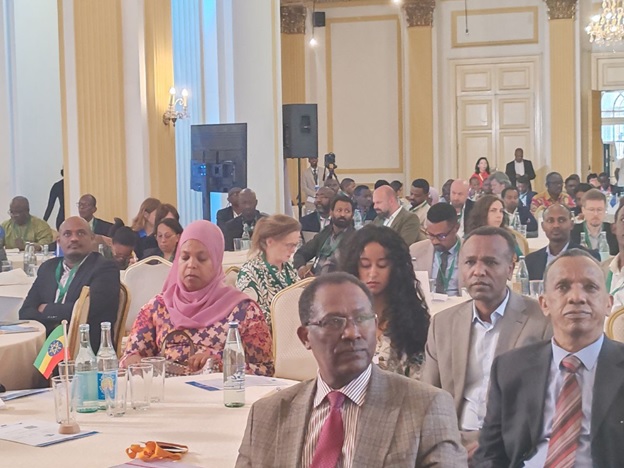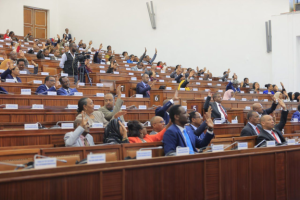
ADDIS ABABA – Ethiopia is emerging as a continental leader in Africa’s green transition by prioritizing education for a sustainable future.
The country is integrating climate literacy into its national curricula and investing in the development of environmentally conscious youth, according to the Ministry of Labor and Skills (MoLS).
The 2025 Regional Erasmus+ Cluster Meeting and Contact-Making Seminar for Sub-Saharan Africa are currently being held in Addis Ababa from May 20–21, 2025.
Speaking at the event, MoLS Minister Muferihat Kamil emphasized the crucial role of education in driving the green transition. She highlighted Ethiopia’s forward-looking education policies that embrace adaptability, new technologies, and green skills.
She also stressed the importance of global collaboration, particularly the use of Artificial Intelligence (AI) for sustainable development and the implementation of successful green programs.
Muferihat stated that Ethiopia is developing a model for the continent to equip the African workforce with skills relevant to the green economy.
The ministry is working to harmonize standards, recognize qualifications, and implement reforms aimed at boosting job creation, entrepreneurship, and skills development.
These reforms include modernizing Technical and Vocational Education and Training (TVET) systems and enhancing employment services. Collaborations such as the Erasmus+ program are expected to accelerate progress.
Ethiopia’s commitment to a green future is also reflected in its ambitious national programs. The Green Legacy Initiative, spearheaded by Prime Minister Abiy Ahmed (PhD), has resulted in the planting of billions of seedlings across the country. This effort showcases Ethiopia’s dedication to reforestation, combating land degradation, and strengthening environmental resilience. In addition, the government is investing significantly in clean energy.
The Abbay Dam stands as a flagship example of Ethiopia’s pursuit of sustainable energy. The dam is not only poised to boost electricity generation through a stable and renewable source but also expected to create demand for skilled professionals in hydropower technology and renewable energy management, she added.
The Ministry of Education State Minister Eda Mijena stated that education is more than a means for individual advancement—it is the cornerstone of societal transformation. To navigate the green transition effectively, he said, individuals must be equipped with the knowledge, skills, and values that promote sustainability.
He emphasized that addressing the global environmental sustainability gap requires collective action beyond the classroom. A comprehensive approach is needed—one that integrates environmental literacy across all educational levels and disciplines.
Eda also noted that Ethiopia is implementing a range of green transition initiatives, including renewable energy expansion, land restoration, electric mobility, regional integration, and green job creation. The government has also moved to phase out gasoline and diesel imports, a move that demands a new generation of trained teachers and academic leaders to support this transformation.
The European Union Delegation to Ethiopia Chair and Cooperation Head Roberto Schiliro emphasized the importance of collaboration between Ethiopia and the EU.
He said joint efforts on green education programs and skills mobility partnerships can help cultivate a skilled, entrepreneurial workforce essential for environmental sustainability and long-term economic prosperity.
BY ESSEYE MENGISTE
THE ETHIOPIAN HERALD WEDNESDAY 21 MAY 2025




